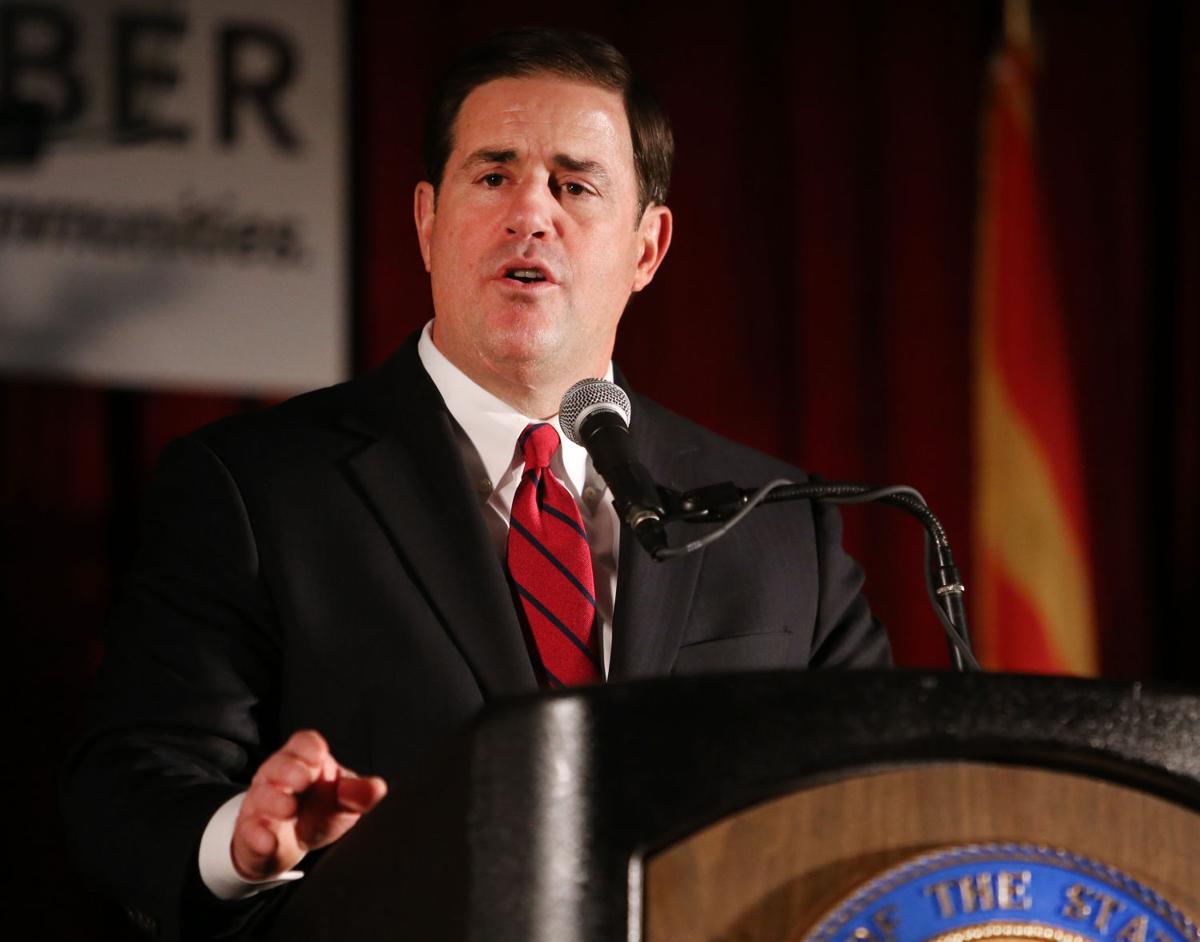PHOENIX — State lawmakers Wednesday sent Gov. Doug Ducey a bill that will allow him to enforce his demand that local governments fall into line with state policies.
SB 1487 allows any legislator to ask the Attorney General’s Office to investigate whether a local ordinance or policy is contrary to state law. If the attorney general finds the state statute is being violated, the local government would be given 30 days to bring their local practices into compliance.
But what really gives the measure some teeth is the failure of a city, town or county to comply would require the state treasurer to stop providing state aid and redistribute those dollars to other communities.
And if a local government disagreed, the case would go directly to the state Supreme Court for a final word.
Ducey spokesman Daniel Scarpinato said his boss is waiting to see the final language. But Scarpinato acknowledged the legislation crafted by Senate President Andy Biggs is in line with a frustration the governor expressed in his State of the State address in January.
In that speech, the governor lashed out at communities that were looking to create “a patchwork of different wage and employment laws.”
“It’s California-style chaos,” he said, calling such local laws “trendy, feel-good policies that are stifling opportunities across the nation.”
And just so the point was not lost, Ducey said he’s not just asking local governments to fall into line.
“I will use every constitutional power of the executive branch and leverage every legislative relationship to protect small businesses and the working men and women they employ, up to and including changing the distribution of state-shared revenue,” the governor said.
SB 1487 provides exactly that power.
“This is a critical bill if we want to be relevant,” said state Rep. Warren Petersen, R-Gilbert. “This is an enforcement mechanism so that the laws are followed.”
If Ducey signs the measure, the likely first targets are Tucson and Bisbee.
In the case of Tucson, there already is a formal attorney general’s opinion that two city ordinances are contrary to state law.
One requires people who lose a firearm to report it to police. The other allows police to request a breath sample from someone who has negligently discharged a firearm and appears intoxicated.
Tom Horne who was attorney general at the time said both laws run afoul of a state statute that pre-empts local gun laws.
City Attorney Mike Rankin disagrees. And the council has refused to back off.
Now Mark Brnovich, Horne’s successor, could threaten the city with loss of its revenue-sharing dollars, a figure in the $50 million range.
Bisbee is in a somewhat similar position, with its council concluding a state law banning regulation of plastic bags does not apply to its ordinance.
The legislation also comes as other communities are looking at enacting local laws that could be seen in conflict with state policy, including higher minimum wages than state law and requiring private companies to offer things like paid sick and maternity leave.
Wednesday’s 32-28 vote came over the opposition of several lawmakers who previously had been on city councils.
State Rep. Bob Robson, R-Chandler, said he shares the frustration of some of his colleagues when cities appear to ignore state statutes. He cited his own battle with the city of Scottsdale that had thrown roadblocks in the path of “sign walkers,” people who stand on sidewalks near businesses to solicit customers.
But he said the penalty is inappropriate.
“Taking state-shared revenue is taking from the citizens of a community that really had no stake in it, other than the people they hire,” he said.
Robson also said that city council members, in enacting local laws, rely on the legal advice of their attorney.
He said if the attorney general determines those laws are contrary to state law and that decision is upheld by the Supreme Court, a more appropriate remedy might be something like requiring the city attorney to take the bar exam over again “because they didn’t understand the constitution.”





